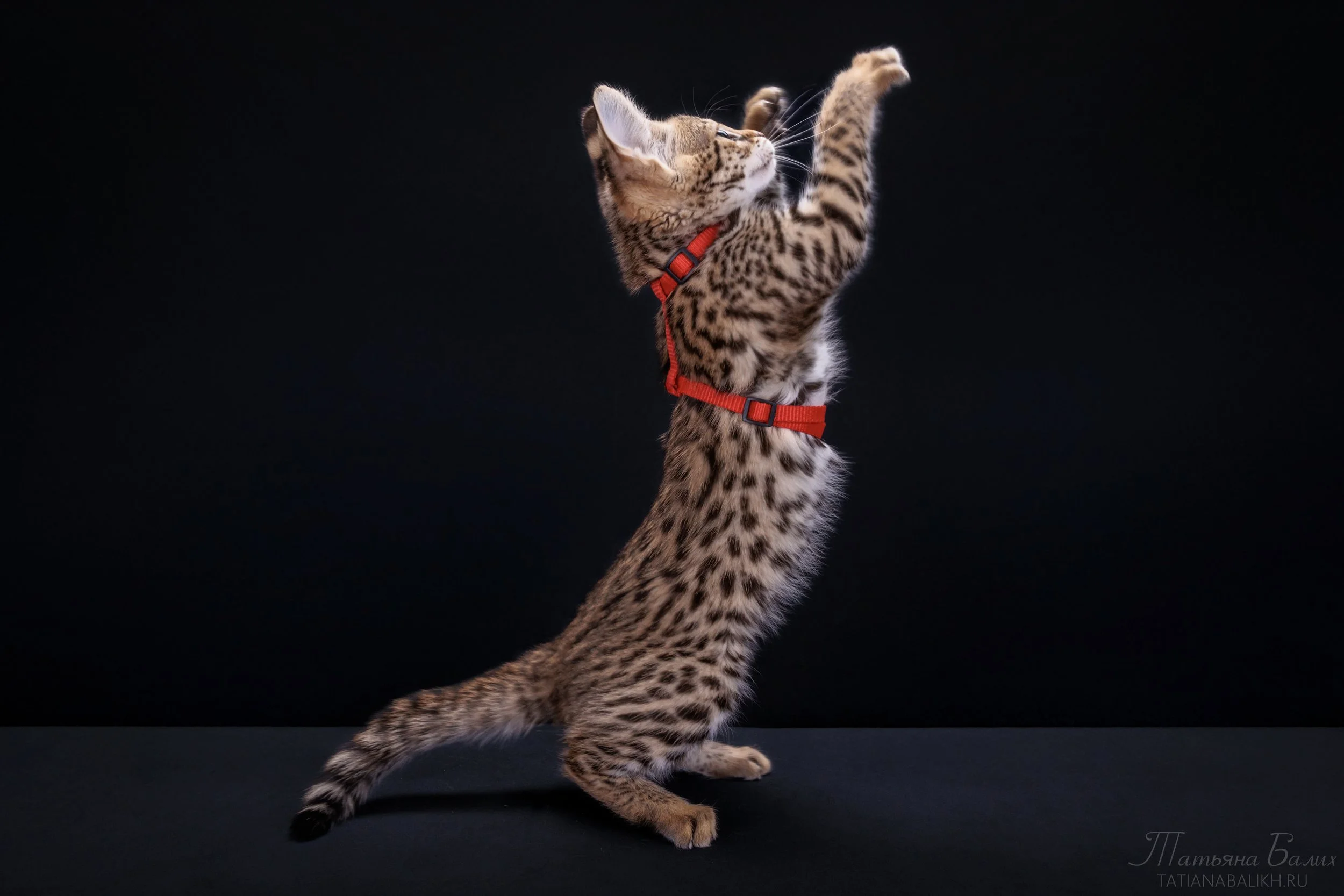savannah Cat Diet
Here is what a Savannah Cat should eat to be the healthiest they can be!
you can find everything they need at amazon.com/shop/f1savannahs
Raw Meat Diet
If whole prey is not available, a raw meat-based diet should include:
80% Muscle Meat – Chicken, turkey, beef, rabbit, or venison.
10% Raw Bone – Chicken necks, wings, or ground bones for calcium.
10% Organ Meat – Liver, kidney, heart (for essential vitamins, especially taurine).
Supplemental Egg (Optional) – Raw quail eggs provide biotin and healthy fats.
⚠️ Avoid commercial kibble or canned food – Most are not nutritionally complete for servals and may lead to health issues.
2. Essential Vitamins & Supplements
Even with a raw diet, some vitamins and minerals may need supplementation:
A. Key Vitamins & Minerals
Taurine – Found naturally in heart, liver, and whole prey. Essential for vision, heart function, and digestion.
Calcium & Phosphorus – Found in bones; if feeding boneless meat, use a calcium supplement (calcium carbonate or bone meal).
Vitamin A – Found in liver; essential for skin, vision, and immune function.
Vitamin D3 – Required for calcium absorption. Wild servals get it from prey; if indoors, a supplement may be needed.
Vitamin E – Acts as an antioxidant; found in organ meats.
Omega-3 Fatty Acids (Fish Oil or Krill Oil) – Supports joint health and skin condition.
B Vitamins (B1, B2, B6, B12, Biotin, Niacin, Folic Acid, etc.) – Naturally found in meats but can be supplemented if necessary.
B. Best Supplements for Captive Servals
Feline-Specific Multivitamin (Only if needed, such as Mazuri Carnivore Supplement)
Eggshell Powder (For calcium if bones are not included in the diet)
Taurine Powder (If not enough heart/liver is fed)
Wild Fish Oil (For Omega-3s)
Digestive Enzymes & Probiotics (If gut health issues arise)
3. Feeding Schedule
Kittens (0-6 months) – Feed 3-4 times daily, whole prey, raw meat, and soft bones.
Juveniles (6 months - 1 year) – Feed 2-3 times daily, whole prey and raw diet mix.
Adults (1 year+) – Feed once or twice per day, mimicking natural hunting habits.
4. Foods to Avoid
No Cooked Bones – They splinter and can cause internal damage.
No Carbohydrates (Grains, Rice, Vegetables, Fruits) – Servals cannot digest carbs properly.
No Dairy – They are lactose intolerant.
No Raw Pork – Risk of parasites.
No Processed Cat Food (Kibble or Canned) – Lacks the correct amino acid and moisture balance.
No Onions, Garlic, Chocolate, Grapes, or Toxic Plants – Poisonous to felines.

